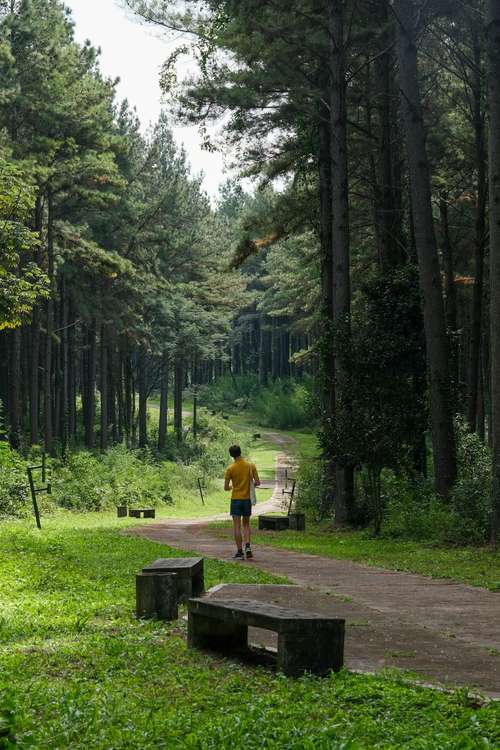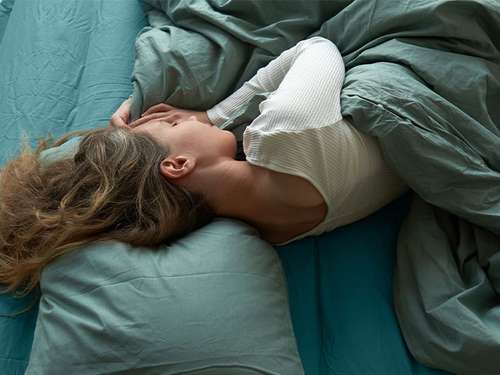Cannabis has been making headlines for its potential to improve sleep quality, and many people are now looking into it as a natural remedy for sleep disorders. In recent studies, including some from the UK Medical Cannabis Registry, participants suffering from primary insomnia have reported better sleep quality and enhanced relaxation when using controlled doses of cannabis. With a mix of THC and CBD, many individuals find their nights transformed from restless tossing to more restorative, restful sleep.
If you've ever wondered whether a plant known for its calming properties could be the answer to sleepless nights, you're not alone. Many of us know someone who has struggled with sleep issues, and the idea of using an herbal sleep aid like cannabis might sound like a game-changer. It can be a bit surprising to learn that something once relegated to counterculture could be a potential tool for sleep improvement.
Cannabis and Its Sleep Benefits
This section delves into how cannabis acts as a sleep aid and the benefits it might offer those who suffer from insomnia. There is evidence suggesting that cannabis can address sleep problems through its natural compounds, delivering a mix of relaxation and pain relief.
Many individuals have turned to cannabis to help regulate their sleep cycle. When you consider the role of THC and CBD, it becomes clear that each component works differently. While THC is known to help shorten the time it takes to fall asleep, CBD may play a role in reducing stress and anxiety—two significant factors that often contribute to insomnia. Often, people find that when they incorporate cannabis into their nightly routine, they not only achieve a state of calm but also experience more deep, uninterrupted sleep.
The benefits of using cannabis as a sleep aid extend beyond just falling asleep. In some cases, it has been likened to having a natural sedative, reducing the hyperactivity of the mind that can keep us awake at night. It's like resetting the mind's engine, allowing you to hit the brakes and truly rest in a state of ease.
How Cannabis Works as a Natural Sleep Aid
In this section, we'll look at the mechanisms behind cannabis's sleep benefits. Scientific insights and personal anecdotes both suggest that the plant's active compounds interact with the body's endocannabinoid system to promote relaxation and sleep enhancement.
For starters, the endocannabinoid system is responsible for many bodily functions, including sleep, mood, and pain regulation. When THC binds to certain receptors in the brain, it not only promotes drowsiness but can also alter the normal sleep cycle, leading to longer periods of deep sleep. On the other side, CBD appears to influence how the body reacts to anxiety and stress, which are common culprits behind sleep issues. The combination of these cannabinoids may provide a balanced approach to sleep support, offering more than just a simple sedative effect.
This explanation might remind you of tuning a musical instrument—each cannabinoid plays its part to help create the perfect harmony needed for a night of restful sleep. The delicate interplay between THC and CBD in providing both mental relaxation and improved sleep quality is what intrigues both researchers and those seeking alternative medicines for sleep issues.
Medical Insights and Ongoing Research
This part of our article highlights medical studies and research that have begun to validate the use of cannabis as an effective sleep aid. Although more work is required to confirm findings, the preliminary evidence is promising.
A recent study registered with the UK Medical Cannabis Registry provided controlled doses of medical marijuana to participants with primary insomnia. The results were encouraging—many reported improvements in sleep quality and a more balanced sleep cycle. It’s important to note, however, that while some of these effects can be attributed to the relaxation properties of cannabis, there’s also a component related to alleviating anxiety and depression. In other words, for some people, better sleep is a byproduct of improved overall mental health.
Reflecting on this, it's as if cannabis is offering a two-for-one deal: a natural remedy addressing both sleep disorders and associated mood issues. The balance between the sleep-inducing effects and mood stabilization highlights cannabis as a dual-action herbal sleep aid. Even clinicians are taking note, suggesting that while cannabis might not be a one-size-fits-all solution, it certainly holds potential as a sleep support option.
It’s natural to be cautious given the current trends and coverage in alternative medicine. Medical experts often remind us that self-medication should always be approached carefully, particularly with substances like cannabis, where individual responses can vary significantly. But personal anecdotes and early clinical data both hint at the benefits of cannabis for sleep enhancement, encouraging further exploration into its use as an alternative treatment for insomnia.
Benefits and Limitations of Cannabis for Sleep
After looking at the potential benefits of cannabis for sleep improvement, it's important to address its limitations. This section examines both sides of the coin—what cannabis might do for your sleep cycle and where caution is needed.
One of the major benefits is the natural approach to tackling sleep problems without resorting to harsh chemicals. Many people are turning away from prescription sleep aids due to their dependency and side effects, making cannabis a more appealing option. It offers a natural remedy that might provide sleep enhancement without the usual drawbacks associated with some medications.
On the flip side, the effects of cannabis as a sleep aid can differ widely depending on the strain and the individual's reaction to THC and CBD. While a controlled medical dosage has shown promise, there is a risk of overuse and dependence if not properly managed. Some users may experience grogginess the next day or disruptions in their sleep cycle if the dosage is too high. The lack of universal standards in dosing and quality control means that more research is needed to standardize cannabis use for sleep disorders.
Despite these caveats, the promise of cannabis as an alternative medicine for sleep disorders is hard to ignore. With more ongoing research, particularly studies that utilize robust methodologies, we may soon have clearer guidelines and standardized dosages for those considering this path. The balance of potential benefits against possible limitations continues to fuel both scientific inquiry and personal experimentation.
If you've ever considered a natural approach to dealing with sleep problems, cannabis offers an intriguing possibility. It's like exploring uncharted territory in the realm of sleep aids—where natural remedies might just be the key to unlocking better, more restful sleep.
In summary, the conversation around cannabis as a sleep aid is evolving, transitioning from taboo to therapeutic in many health circles. While some of its promise has been backed by preliminary research, including studies from reputable medical registries, individuals must weigh the benefits against the possible drawbacks. For many, this alternative medicine may become part of a balanced approach to achieving a healthier sleep cycle and overall wellness.
So, is cannabis the sleep aid of the future? It might be, provided you tread carefully with guidance from healthcare professionals. In a world filled with sleep issues and stress, finding methods for sleep support that naturally enhance sleep quality is a beacon of hope for countless individuals. Here’s to exploring natural remedies and unlocking the secrets to a more restful sleep!




